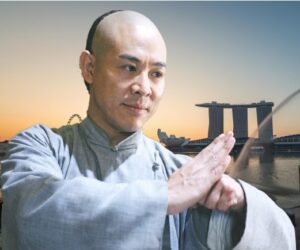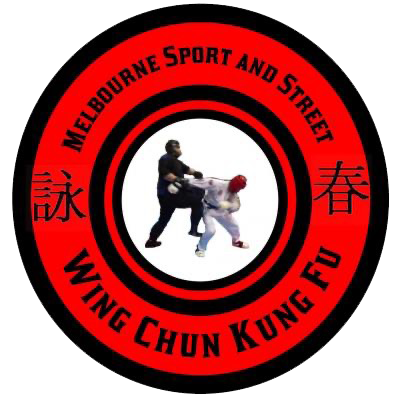Martial Artists and Their Impact on Popular Culture
Introduction:
Fighting styles have had a profound impact on popular culture, with martial artists transcending the boundaries of the dojo to become iconic figures in movies, television, literature, and more. Their awe-inspiring skills, discipline, and philosophy have captivated audiences worldwide, shaping the way people perceive and appreciate martial arts. In this article, we will explore the influence of martial artists on popular culture, delving into the realms of cinema, literature, and beyond.
Bruce Lee – The Cultural Phenomenon

Bruce Lee, the legendary martial artist and actor, is undoubtedly one of the most influential figures in popular culture. With his charismatic on-screen presence and incredible fighting skills, Bruce Lee became an international sensation. His films, such as “Enter the Dragon” and “Fists of Fury,” not only shattered box office records but also introduced the art of Kung Fu to a global audience.
Beyond his cinematic achievements, Bruce Lee’s philosophy and martial art, Jeet Kune Do, left an indelible mark on popular culture. His famous quotes, such as “Be like water” and “Using no way as the way,” continue to inspire people worldwide, transcending the boundaries of fighting styles to offer valuable life lessons.
The Legacy of Bruce Lee
Bruce Lee’s legacy endures in the hearts of martial artists and fans alike. His impact on popular culture can be seen in the countless movies, TV shows, and video games that pay homage to his iconic fighting style and philosophy.
Moreover, Bruce Lee’s influence extends to the martial arts community, where practitioners continue to study and adopt Jeet Kune Do principles. As a symbol of perseverance and dedication, Bruce Lee remains an enduring inspiration for those seeking to master various fighting styles and embrace his philosophy both inside and outside the dojo.
The Martial Arts in Hollywood

The influence of martial artists extends beyond Bruce Lee, with many other iconic figures leaving their mark on Hollywood. Jackie Chan, known for his incredible acrobatics and comedic timing, brought a unique blend of action and humor to his movies. His “Rush Hour” series and “Drunken Master” franchise are celebrated examples of how martial arts seamlessly blend with entertainment.
Jet Li, another prominent martial artist and actor, made a name for himself through movies like “Fist of Legend” and “Once Upon a Time in China.” His mesmerizing fighting skills and emotive performances made him a beloved figure in the world of fighting styles and entertainment.

Martial Arts in Cinema Today
In contemporary Hollywood, martial arts continue to be a source of inspiration for filmmakers and audiences alike. Action-packed movies, such as “John Wick” and “The Raid,” showcase the artistry and skill of modern martial artists. These films have reinvigorated the popularity of martial arts in cinema, appealing to both dedicated martial artists and casual moviegoers.
Beyond action films, martial arts are also prevalent in other genres. For instance, the animated film “Kung Fu Panda” humorously explores themes of discipline and self-discovery through the eyes of an unlikely hero, a lovable panda named Po.
Martial Artists in Literature
Martial artists have also made their mark in literature, with their stories captivating readers and offering valuable insights into fighting styles and philosophy. The classic novel “Journey to the West” features the Monkey King, Sun Wukong, a master known for his extraordinary abilities and mischievous spirit.
In contemporary literature, authors often draw inspiration from martial arts to create compelling characters and thrilling narratives. Novels like “The Book of Five Rings” by Miyamoto Musashi and “Shogun” by James Clavell blend martial arts with historical fiction, immersing readers in the world of samurai and warriors.
The Martial Arts Journey in Words
Martial arts literature not only entertains but also educates readers about the essence of various fighting styles. These books often explore the mental and philosophical aspects of fighting, offering readers valuable life lessons and the opportunity to gain deeper insights into the martial arts world.
Furthermore, these stories frequently highlight themes of perseverance, honor, and self-discovery, resonating with readers from all walks of life. The impact of these tales goes beyond entertainment, as they inspire individuals to embark on their own journeys, seeking to embody the virtues of discipline and personal growth.
Martial Artists in Sports and Games
In addition to their presence in cinema and literature, martial artists have a significant influence on the world of sports and games. In competitive tournaments, fighters showcase their skills and techniques, captivating spectators with their displays of speed, power, and precision.
Moreover, the world of video games has embraced fighting arts, with characters like Ryu and Chun-Li from “Street Fighter” becoming cultural icons. These virtual martial artists allow players to experience the excitement and artistry of various fighting styles in a digital realm.

The Martial Arts Gaming Experience
Fighting-themed video games offer players an immersive experience, where they can learn and execute virtual fighting techniques. These games not only entertain but also foster an appreciation for different fighting styles, encouraging players to explore the history and philosophies behind the characters they control.
Furthermore, sports like MMA (Mixed Martial Arts) have gained immense popularity, attracting fans from around the world. MMA fighters, who often come from diverse fighting style backgrounds, demonstrate their versatility and adaptability, highlighting the evolution of fighting styles and their impact on popular culture.
Conclusion
Martial artists have had a profound impact on popular culture, influencing movies, literature, sports, and gaming. From the legendary Bruce Lee and his philosophy of Jeet Kune Do to the diverse characters of Jackie Chan and Jet Li, martial artists have mesmerized audiences with their skill and charisma.
Through cinema, literature, and various forms of entertainment, martial artists have not only entertained but also inspired and educated millions. Their influence goes beyond the dojo, shaping the way people perceive and embrace fighting styles in their daily lives.
As we continue to celebrate the contributions of these remarkable individuals, may their legacies serve as a testament to the transformative power of martial arts in shaping popular culture and inspiring generations to come. Whether on the silver screen, within the pages of a book, or in the virtual realm of video games, martial artists continue to leave an enduring imprint on the fabric of popular culture.

